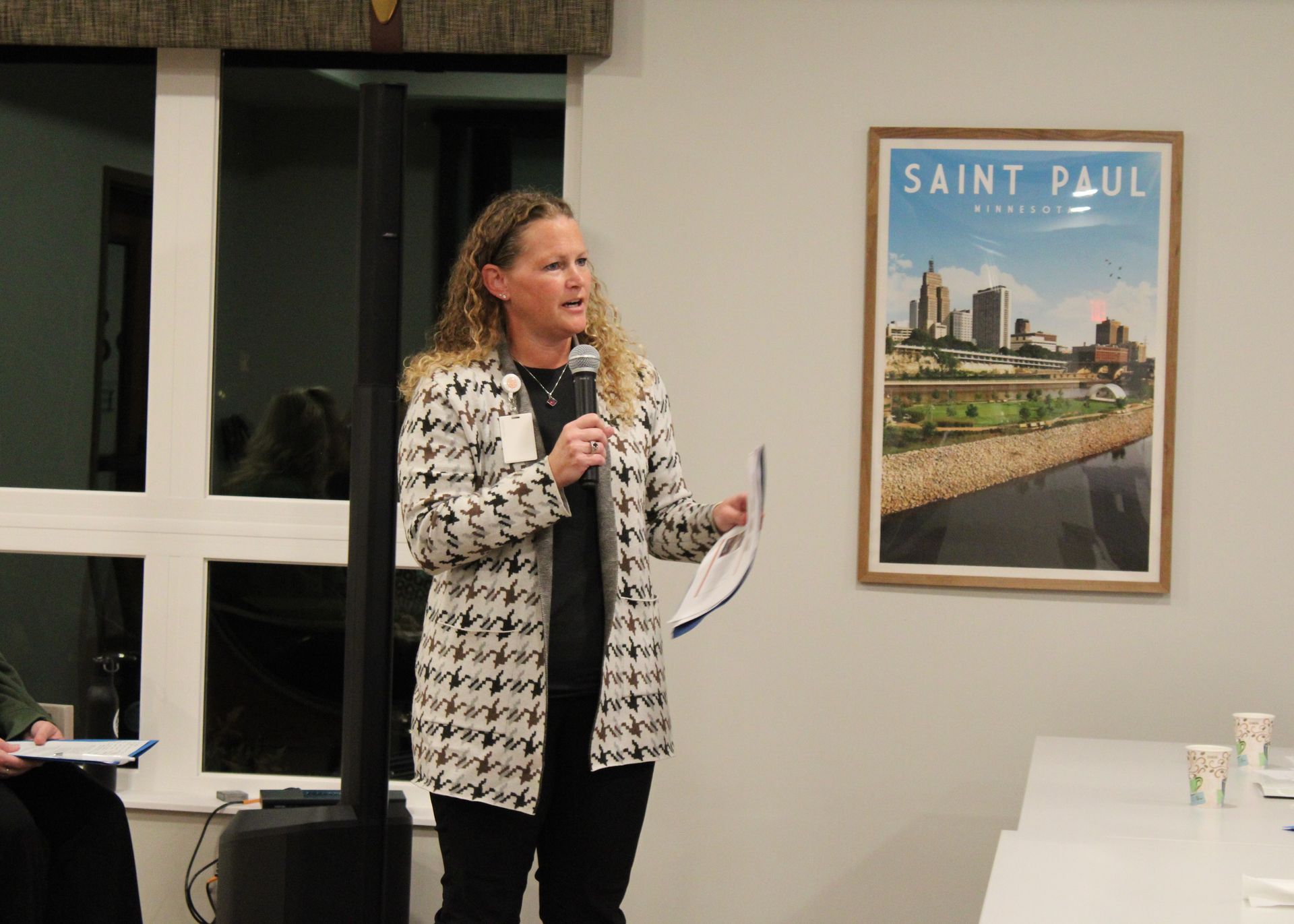
Decluttering to Downsize for Senior Living

We’re heading into peak moving season as experts say 80 percent of the moves in the U.S. happen between April and September. But for older Americans thinking about making a significant move into a senior living community, the idea of moving can be paralyzing. They get stopped in their tracks by the daunting task of decluttering to downsize.
The refrain heard more often than not by sales staff at Saint Therese senior communities is: “I have so much stuff, I need to figure out what to do with it before I move.”
But frequently, figuring it out is something that’s put off for years and years, until the need to move becomes urgent and downsizing is done haphazardly.
“We advise our potential residents to start the decluttering process as soon as they can so downsizing occurs naturally,” said Jennifer Olson, Sales & Marketing Coordinator at Saint Therese at Oxbow Lake in Brooklyn Park.
There are books galore to help you declutter. Marie Kondo and her best seller, “The Life-Changing Magic of Tidying Up: The Japanese Art of Decluttering and Organizing,” burst onto the scene some years ago. And a new industry – downsizing and move management – has sprung from Americans’ penchant for having an extraordinary number of possessions. Case in point: The average American house contains 3,000 items, and the average size of the American home has nearly tripled in the past 50 years; yet one out of every 11 households rents offsite storage[1].
If reading a book, or hiring a company to help you, puts you back into procrastination mode, here are some simple tips to get you going.
- Start small. Organize one shelf, one drawer, one cabinet, one wall, one room at a time. Don’t spend more than two hours at a time working.
- Use the 4-box method – Categorize your items into four boxes, or areas. Items you want to: Keep, Sell, Give away, or Toss.
- Re-evaluate your clothes – Interesting fact: most people wear 20 percent of their clothes 80 percent of the time. So, look in your closet and ask yourself: How many coats, shoes and boots do I really need? How many pants do you have that are out of style or from two sizes ago? Get rid of things that are the wrong size, wrong color, you don’t like or haven’t worn in a year or more.
- Toss duplicates – Other than clothing, try to keep just one of each thing. Do you really need three whisks? Twenty t-shirts? Thirty-five Tupperware containers? Four colanders?
- Get rid of unused items – Do you have things you haven’t used in years? A bread maker, pasta maker, electric frying pan, waffle maker, etc.? It’s time to donate, throw or give to family members.
- Refresh the linen closet and bathroom – Keep a limited number of sheets, blankets and towels. Hold onto complete sheet sets only; throw away those one-off pillowcases. Safely dispose of unused and expired prescriptions and over the counter medications. Do NOT throw them in the toilet or in the trash.
- Tackle the basement or attic – Sort through your holiday decorations and give treasured items to family members. Stop “warehousing” your adult children’s stuff. Insist they take their belongings that are stored at your house. Sell or donate furnishings that you don’t care for or don’t use. Shred, recycle or toss old newspapers, magazines, and documents.
The list goes on, but hopefully you get the general idea.
“An unexpected benefit that I hear from residents who move in after downsizing, is the enormous feeling of accomplishment and relief they felt as they decluttered and organized,” Olson added. “Just ten minutes a day can make a big difference in your outlook.”
To find a move manager near you, you can go the the Find a Move Manager section at the National Association of Specialty & Senior Move Managers website.
[1] “Simplify: 7 Guiding Principles to Help Anyone Declutter their Home and Live,” Joshua Becker, 2010
About
At Saint Therese, our heartfelt purpose since 1968 has been a people first approach to living well by providing senior care and services where every life we touch feels welcomed, respected, and heard. We achieve this by doing ordinary things with extraordinary love every single day. Contact us to learn more.







